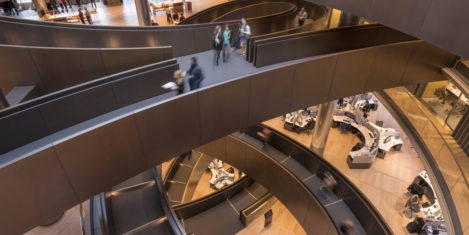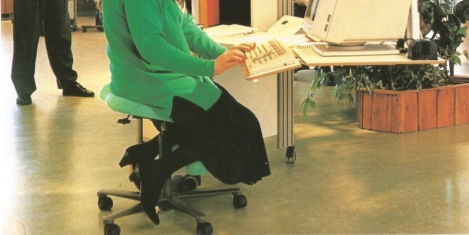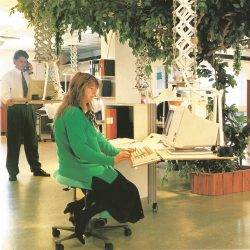To provide the best experiences, we use technologies like cookies to store and/or access device information. Consenting to these technologies will allow us to process data such as browsing behaviour or unique IDs on this site. Not consenting or withdrawing consent, may adversely affect certain features and functions.
The technical storage or access is strictly necessary for the legitimate purpose of enabling the use of a specific service explicitly requested by the subscriber or user, or for the sole purpose of carrying out the transmission of a communication over an electronic communications network.
The technical storage or access is necessary for the legitimate purpose of storing preferences that are not requested by the subscriber or user.
The technical storage or access that is used exclusively for statistical purposes.
The technical storage or access that is used exclusively for anonymous statistical purposes. Without a subpoena, voluntary compliance on the part of your Internet Service Provider, or additional records from a third party, information stored or retrieved for this purpose alone cannot usually be used to identify you.
The technical storage or access is required to create user profiles to send advertising, or to track the user on a website or across several websites for similar marketing purposes.
 Under half (47 percent) of British managers ‘completely agree’ that they would recommend their workplace to others, lagging behind other countries, such as Austria (66 percent), Finland (53 percent), Switzerland (53 percent), and France (51 percent). This is according to a Cornerstone OnDemand and IDC survey of over 1,900 European HR, IT and line of business managers, Future Culture 2018: Building a Culture of Innovation in the Age of Digital Transformation (registration required). More →
Under half (47 percent) of British managers ‘completely agree’ that they would recommend their workplace to others, lagging behind other countries, such as Austria (66 percent), Finland (53 percent), Switzerland (53 percent), and France (51 percent). This is according to a Cornerstone OnDemand and IDC survey of over 1,900 European HR, IT and line of business managers, Future Culture 2018: Building a Culture of Innovation in the Age of Digital Transformation (registration required). More →














 Traditional job roles are becoming more complex due to digital transformation initiatives a new poll claims, with UK businesses having to wait more than five months, on average, for new joiners to get up to speed in their jobs. In the research by Robert Half of almost 5,000 CFOs in 14 countries, CFOs in the UK report that the key skills for finance professionals are changing. With digital transformation a priority for many organisations, there is now more focus on skills such as data analysis (cited by 43 percent of CFOs), financial analysis (35 percent), and data forecasting (34 percent). Finding the right people with these abilities is made even more challenging by the fact that businesses around the world are struggling to find qualified professionals. Almost all (93 percent) UK businesses find it challenging to attract qualified accounting and finance professionals. Globally, the issue is equally pronounced, with 94 percent of businesses also reporting similar challenges.
Traditional job roles are becoming more complex due to digital transformation initiatives a new poll claims, with UK businesses having to wait more than five months, on average, for new joiners to get up to speed in their jobs. In the research by Robert Half of almost 5,000 CFOs in 14 countries, CFOs in the UK report that the key skills for finance professionals are changing. With digital transformation a priority for many organisations, there is now more focus on skills such as data analysis (cited by 43 percent of CFOs), financial analysis (35 percent), and data forecasting (34 percent). Finding the right people with these abilities is made even more challenging by the fact that businesses around the world are struggling to find qualified professionals. Almost all (93 percent) UK businesses find it challenging to attract qualified accounting and finance professionals. Globally, the issue is equally pronounced, with 94 percent of businesses also reporting similar challenges.


















October 18, 2018
Menopause is one of the last great workplace taboos
by Kate Usher • Comment, Wellbeing
More →